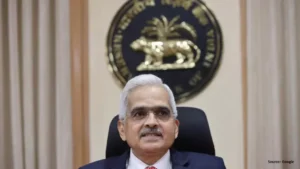Supreme Court to Hear Plea Against Compulsory Military Training in Schools
The Supreme Court to Address the Constitutional Validity of Compulsory Military Training
The Supreme Court has taken a significant step by agreeing to hear a plea challenging the compulsory military training imposed in schools across India. The plea, filed by a group of concerned parents, raises concerns about the constitutionality of such training and its infringement upon the right to education.

Seeking a Declaration of Unconstitutionality
Advocate Prashant Bhushan, on behalf of the parents, has petitioned to declare the National Cadet Corps (NCC) and National Service Scheme (NSS) as “unconstitutional and illegal.” The petition contends that the NCC and NSS are being forcefully imposed upon students and foster a militaristic mindset.
Violation of the Right to Education
The petition further argues that the compulsory military training offered by the NCC and NSS is a violation of the fundamental right to education. It claims that valuable academic time is being sacrificed for these activities, hindering students’ pursuit of knowledge and intellectual growth.
Supreme Court to Hear the Plea
Acknowledging the gravity of the matter, the Supreme Court has agreed to hear the plea on Wednesday. It has also directed the government to provide its response within a span of two weeks, ensuring a fair examination of the issue.
The NCC and NSS: Major Youth Organizations
The NCC and NSS, two prominent youth organizations in India, attract millions of participants. With over 3 million cadets enrolled in the NCC and more than 2 million volunteers in the NSS, both programs hold significant influence. While the NCC falls under the jurisdiction of the Ministry of Defence, the NSS operates under the Ministry of Human Resource Development.
Instilling Discipline and Patriotism
The NCC and NSS offer a diverse range of activities, encompassing physical training, drill exercises, camping, and community service. These organizations are widely regarded as vehicles for instilling discipline and fostering patriotism among young individuals.
Criticism of Militaristic Nature
However, the NCC and NSS have not escaped criticism, particularly regarding their perceived militaristic nature. Detractors contend that these programs serve as conduits for indoctrinating young minds into a culture of violence.
The Court’s Decision: A Pivotal Moment
The Supreme Court’s decision to hear this plea carries immense significance. The ruling could potentially shape the future trajectory of the NCC and NSS, impacting the lives of millions of students and volunteers involved in these organizations.
Conclusion

With the Supreme Court taking up the plea against compulsory military training in schools, the constitutional validity of the NCC and NSS hangs in the balance. As the court examines the arguments put forth by concerned parents, its decision will have far-reaching consequences, shaping the landscape of youth organizations and the educational system in India.




Average Rating